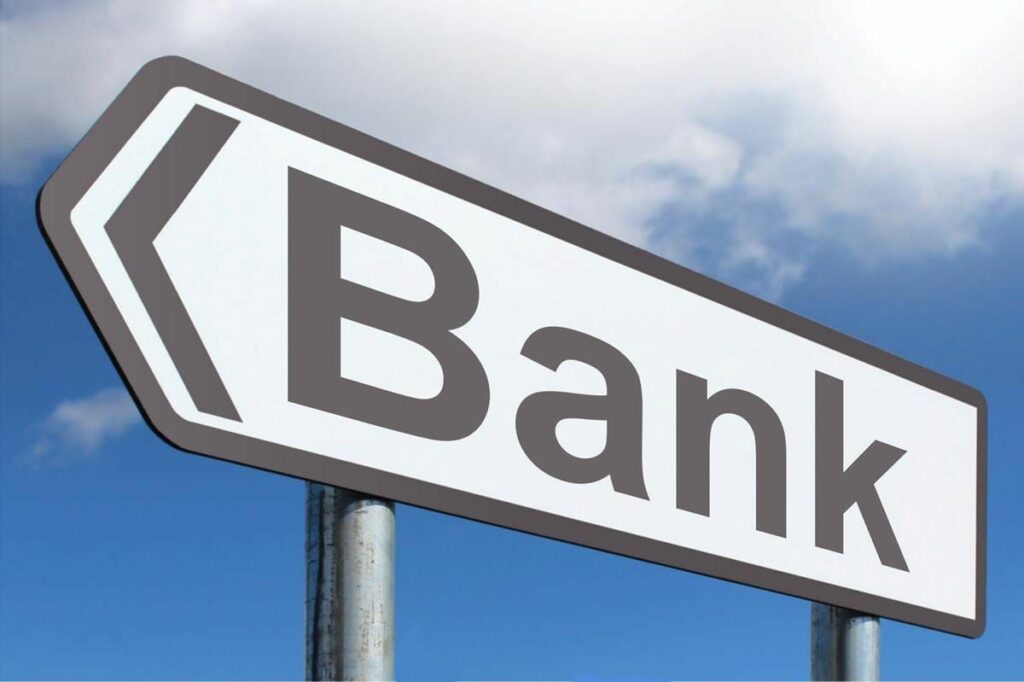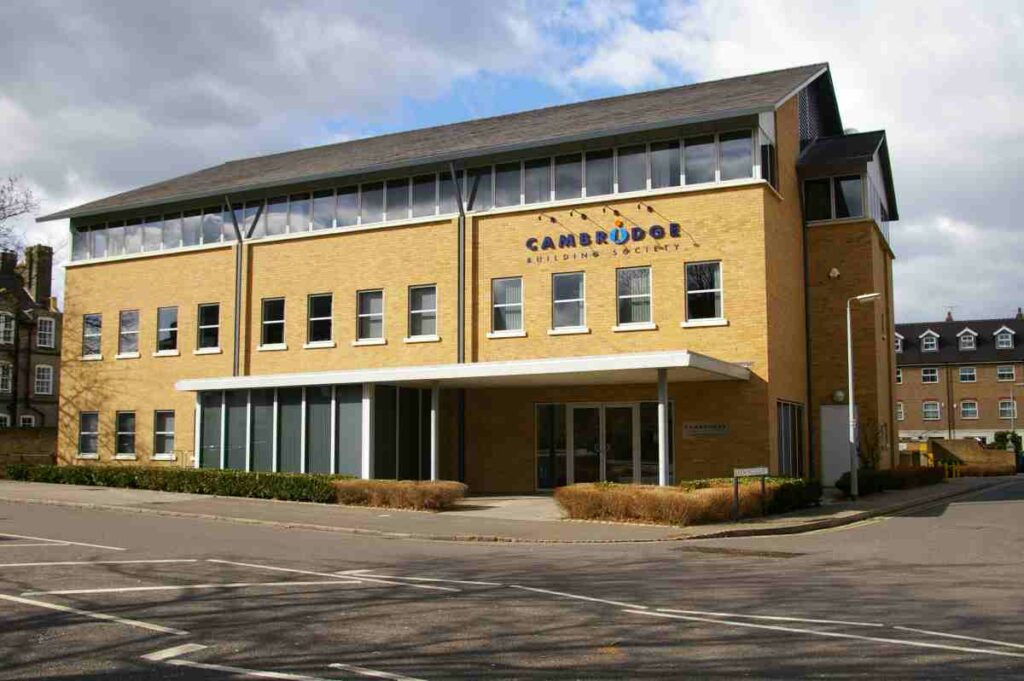Banks and building societies are both financial institutes in the UK however, they do not work the same way. many people assume that banks and building societies are almost identical, but this is not the case.
So, you must know the difference between a bank and a building society. It will help you all the way around from opening a bank account to saving money to applying for a mortgage loan.
If you know the exact difference, you can decide whether a bank or building society will be best for you.
So, if you are interested to learn about the difference between a bank and a building society then this article is for you.
Here, in this article, I am going to wrap together
- What is a bank?
- what is a building society?
- the core function of banks,
- the core function of building societies.
- The main difference between a bank and a building society.
- And are the banks safer than building societies?
Let’s dive into the deep!
What is a Bank?

A bank is a financial institution that is usually owned by shareholders. Banks are such organizations where every individual and business can save or borrow money.
Most of the banks tend to operate across the entire United Kingdom, or globally.
There are traditional banks for individuals and commercial banks for businesses. banks not only safeguard your funds but also lend money to the members of the public.
Banks can be owned by several shareholders who are interested in the bank’s success. these shareholders also take payments or dividends out of the profits.
there are various banks out in the market that can be operated through apps from mobile. banks are fully licensed to deposit your money as well as provide bank loans.
commercial banks are concerned with depositing, withdrawing, and providing short-term loans to individual customers and businesses.
What is a Building Society?

Building society also looks after customers’; funds and lends money to individuals and businesses.
However, the major difference is that they do not have shareholders and are not listed on the stock exchange.
A building society is owned by its members. Members are also customers who hold mortgages or savings accounts In the building societies, so they are also called “mutual” societies.
Building societies are not as common as banks, The number is very low compared to banks in the UK. There are around 44 in the UK today. The Building Societies Association is the voice of them and credit unions.
The Core Function of Banks
Core banking can be defined as a back-end system that possesses banking transactions over the various branches of a bank. the core functioning of the banking system is usually related to deposit, loan, and credit processing.
core banking system aims to empower existing and probable customers to possess great freedom over their account transactions. With technological evolutions, transactions are now safer, easier, and faster.
Core banking always brings down operational costs, so ensures the lesser manpower requirement for execution. It also ensures higher accountability for the customers.
The Core Functionality of Building Societies
The core functionality of Building Society in the UK is to provide banking and other financial services to its members. building societies have a particular focus on saving and mortgage lending.
The building societies aim to offer deposit accounts, loans, mortgages, and other financial products.
mortgages help the individuals as well as the business owners who buy into a building society make huge real estate purchases without paying its entire value upfront.
Then, over a larger period, the borrower will pay the amount with interest.
The main differences Between Banks and Building Societies
There are various key differences between these two.
First, the bank has several external shareholders, while building society does not. In Building society, customers become their members and have a more prominent role in saying what’s going on in the organization.
If I talk about services and product offerings, you can expect a better interest rate in Building societies while banks offer a wide range of products.
That is because banks have better leeway concerning the financial products they can provide.
Apart from these, there are also some key differences between these two. Let’s have a look!
When to Use Banks
There are many situations when you can open a current or savings account or can go for purchasing other banking products.
Banks offer a worldwide approach. There are no boundaries that restrict you from accessing banking.
You can also enjoy a wide range of products when you are connected with a traditional bank.
Since private shareholders own banks, the banks are continuously growing. It means that you are more likely to have enhanced services and products.
Advantages and Disadvantages of bank
Advantages
- Banks are more convenient as there are plenty of branches across the United Kingdom.
- So, you can easily visit any of the branches in person when required.
- You can enjoy a wider range of products and services at a bank.
Disadvantages
- the interest rate that a bank offers on savings accounts is much lower than the rates of Building Societies
- banks lack a personal service because of the size of these businesses.
When to Use Building Society
If you are looking to save money, you will get a better interest rate by choosing a building society. it will act as an income boost while many people struggle to save it all.
many people also choose these financial organizations because they are more in tune with mortgages, ISAs, and loans.
Advantages and Disadvantages of Building Societies
Advantages
- Since Building Societies do not need to pay dividends from the profits to the Shareholders, customers can enjoy some of the profits.
- lower interest rates on mortgages and a higher interest rate on savings accounts.
- Members also have an input in decisions that impact the overall conduction of the Building Societies.
- members can vote in the Annual General Meeting.
Disadvantages
- Building society accounts usually have penalties for making early withdrawals, so it will be a little difficult to access your money quickly.
- Building societies generally have a limited range of investment products for you.
- Building societies are less diversified than banks.
Are Banks Safer Than Building Society?
Although there are clear differences between banks and building societies in the UK, you can expect the same in terms of compensation from both.
Banks and Building Society both are authorized by the PRS (Prudential Regulatory Authority).
Both the Bank and building society are regulated by the Financial Conduct Authority and the PRA. Both bank and building society are protected by the FSCS (Financial Services Compensation Schemes).
Whether you choose to open a savings or current account or borrow money from a bank or a Building Society that completely depends on your needs and circumstances.
If you want to join such a financial institution where you can join in the decision-making procedure then a Building Society may be the best place for you.
FAQ
What is the best bank or building society in the UK?
Ans: There are various renowned banks out in the market in the United Kingdom including Barclays, and HSBC UK, The Nationwide Building Society.
How do you know if my bank is a building society?
Ans: Most Standard UK bank accounts have an 8-digit account number and 6 shortcodes. Some building society accounts also include building society roll numbers or just a roll number. This is a reference code with letters and numbers.
What are the top 3 building societies in the UK?
Ans: Nationwide Building Society, Yorkshire Building Society, Coventry Building Society, Skipton Building Society, and Leeds Building Society are the top five building societies in the UK.
Is Barclays building society?
Ans: No, Barclays is a British Universal Bank.
Conclusion
There are pros as well as cons associated with banks and building societies. it may be that one is better than the other. But, you need to analyze your current situation and needs and then determine which option will be best for you.
If you want to enjoy better rates on your account, building societies will be the best option for you. However, if you want to access a wider range of products, banks will be the better fit!






